Views: 0 Author: Ancheng Publish Time: 2025-10-13 Origin: Site








In today’s environmentally conscious world, the demand for sustainable alternatives to plastic products has grown dramatically. Among the many eco-friendly replacements, disposable wooden forks have gained significant popularity. They are biodegradable, elegant, and functional — making them an ideal choice for restaurants, catering services, events, and everyday use.
This complete guide will help you understand everything you need to know about disposable wooden forks — from materials and benefits to manufacturing, usage, and buying tips for businesses.
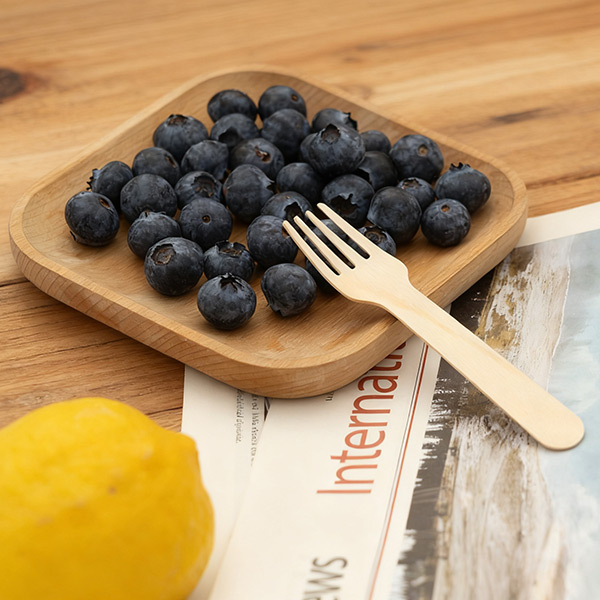
A disposable wooden fork is a single-use eating utensil made from natural wood, designed to replace plastic cutlery. It is commonly used for take-out meals, picnics, catering, parties, and events where convenience and hygiene are important.
Unlike traditional plastic forks, wooden forks are eco-friendly — they decompose naturally, leaving no harmful residues in the environment.
Disposable wooden forks are smooth, sturdy, and suitable for all types of food — hot, cold, dry, or oily. They are available in various sizes, typically ranging from 90mm (for appetizers) to 170mm (for main courses).
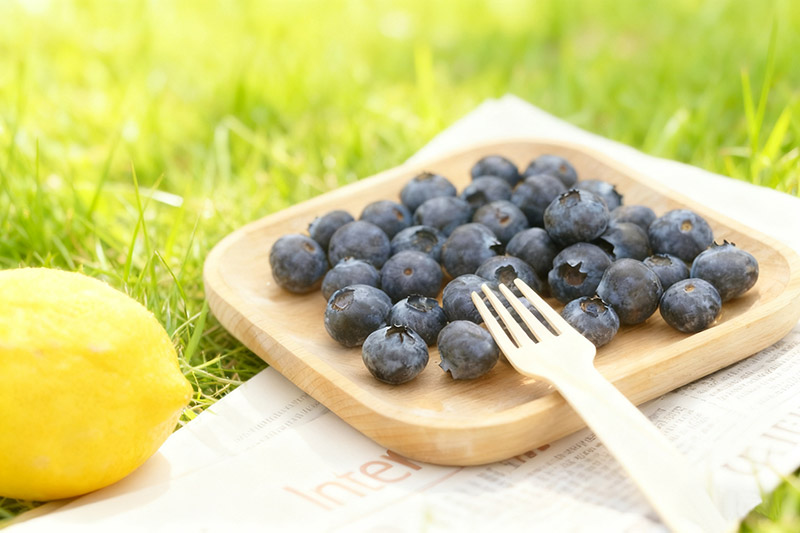
The shift toward wooden forks is driven by both environmental awareness and regulatory changes. As many countries ban single-use plastics, businesses and consumers are actively seeking sustainable alternatives.
Here are the key reasons for the growing popularity of disposable wooden forks:
Wooden forks are made from renewable and biodegradable materials such as birchwood or bamboo. They decompose within months, unlike plastic cutlery which can take centuries.
Many governments have imposed bans or restrictions on single-use plastics. This has accelerated the adoption of biodegradable tableware made from materials like wood, bamboo, or bagasse.
Wooden forks have a clean, rustic, and elegant look that adds a touch of sophistication to any meal. They are especially popular in eco-conscious cafes, outdoor weddings, and organic food events.
High-quality wooden forks are chemical-free and food-safe, meaning they contain no coatings, toxins, or harmful additives. This makes them suitable for both adults and children.
From salads and desserts to pasta and grilled meat, wooden forks can handle a wide variety of foods. They are heat-resistant and do not melt or bend like plastic.
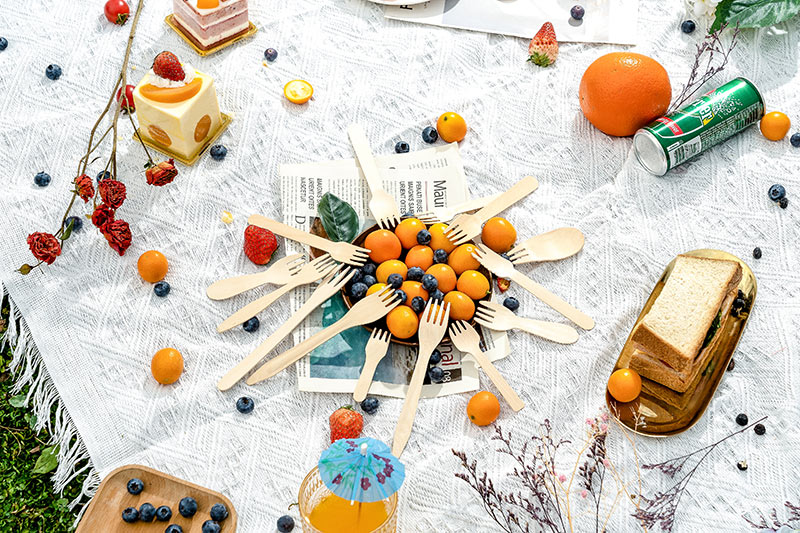
Not all disposable wooden forks are the same. Depending on the intended use, they vary in length, thickness, and design.
85mm Wooden Fork: Small and compact, suitable for appetizers, desserts, or tasting events.
100mm Wooden Fork: A versatile mid-size option ideal for snacks, small meals, or fruit platters.
140mm Wooden Fork: Common for lunch boxes, salads, and takeout meals.
160mm Wooden Fork: The standard dinner-size fork, perfect for restaurants, catering, and main courses.
Birchwood: The most common material used for disposable forks. It’s smooth, splinter-free, and has a light natural color.
Bamboo: Slightly stronger and more water-resistant, bamboo forks are ideal for greasy or saucy foods. They also carry a more distinct grain texture.
Standard 3 or 4-Prong Forks: The classic design, suitable for most foods.
Mini Tasting Forks: Smaller versions used for sampling, appetizers, and dessert tables.
Custom Shaped Forks: Some manufacturers like Ancheng offer unique shapes or engraved handles for branding or decorative purposes.
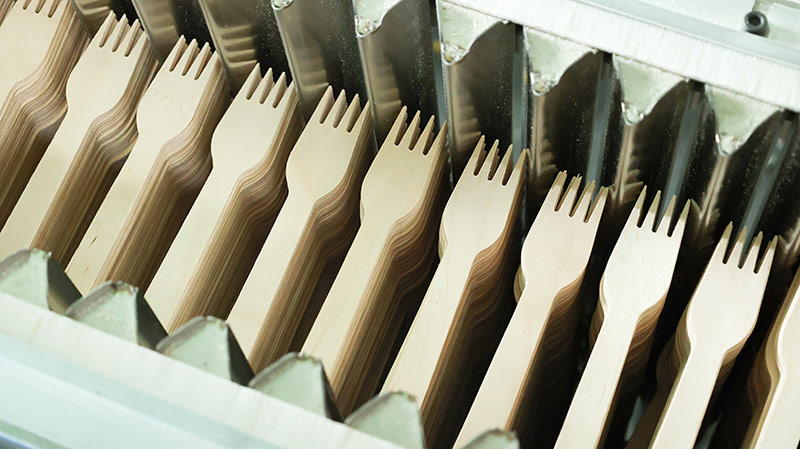
The manufacturing of disposable wooden forks involves several eco-friendly steps, ensuring both sustainability and hygiene.
Wooden forks are made from sustainably sourced timber, mainly birch or bamboo. The trees used are often from renewable forests where replanting is mandatory.
The wood is first cut into thin sheets, then die-cut into the fork shape. Advanced cutting machinery ensures precision and uniformity across batches.
To create a smooth and splinter-free surface, the forks are sanded and polished. This step is crucial for user comfort and food safety.
The forks undergo a high-temperature treatment to eliminate bacteria and ensure they are food contact safe. No chemical coating or plastic layer is used.
Each batch is inspected for quality — checking for smooth edges, strength, and cleanliness. Finally, the forks are packed in paper bags, paper boxes, or bulk cartons, ready for shipment.
Wooden forks offer a range of benefits over plastic and paper alternatives:
Wooden forks break down naturally without leaving toxic residues, contributing to a circular and sustainable economy.
Despite being lightweight, wooden forks are sturdy enough to handle tough foods like meat or pasta without bending or snapping.
They can safely be used with hot meals and soups — something plastic cutlery often fails at.
Made from untreated wood, these forks contain no harmful substances like BPA, plasticizers, or coatings.
Wooden utensils enhance the dining experience by giving a natural, organic touch. They blend perfectly with eco-themed packaging or rustic table setups.
Businesses can print or emboss their logos, slogans, or custom designs on the handles for brand recognition and eco-marketing appeal.
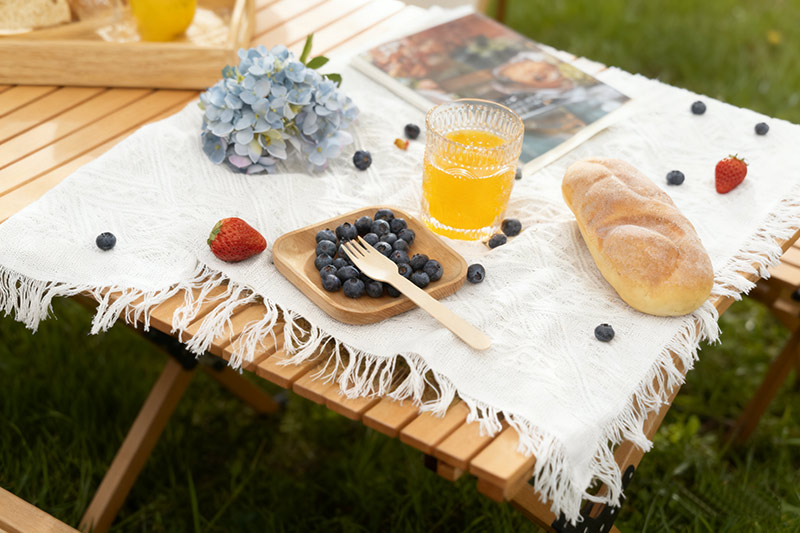
Disposable wooden forks are used across multiple industries and occasions:
Restaurants and Cafés: For takeout, delivery, and dine-in with sustainable branding.
Catering Services: For weddings, corporate events, and outdoor gatherings.
Food Trucks and Street Vendors: Lightweight and practical for on-the-go service.
Schools and Institutions: Safe for children and ideal for large-scale meal programs.
Households: Perfect for parties, barbecues, and picnics — no washing needed.
Their versatility makes them one of the most popular eco-friendly tableware choices in today’s food industry.
Feature | Wooden Fork | Plastic Fork | Bamboo Fork |
Eco-Friendliness | 100% biodegradable | Non-biodegradable | 100% biodegradable |
Durability | Strong, sturdy | Can bend or melt | Very strong and flexible |
Heat Resistance | Excellent | Poor | Excellent |
Aesthetic Appeal | Natural look | Artificial | Natural bamboo texture |
Cost | Moderate | Cheap | Slightly higher |
Decomposition Time | 2–4 months | Up to 400 years | 4–6 months |
Best Use | All-purpose dining | Disposable fast food | Premium eco events |
Verdict: Wooden forks strike a perfect balance between cost, performance, and sustainability — making them the most widely adopted eco-cutlery option.
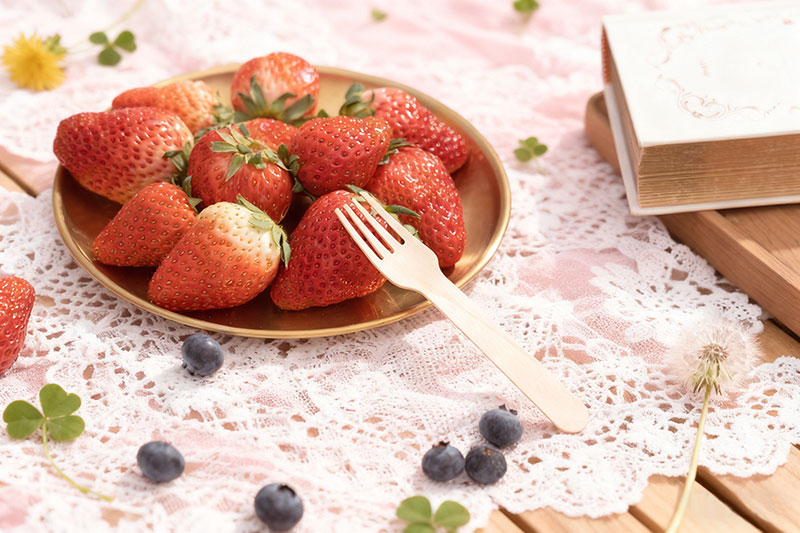
When selecting disposable wooden forks for your restaurant or wholesale business, consider these important factors:
Choose the right length and thickness based on your menu. For example, smaller forks are great for desserts, while larger ones suit main dishes.
Look for smooth-surfaced, splinter-free forks made from birch or bamboo. Ensure they meet food contact safety standards (such as LFGB or FDA).
Depending on your service style, you can select bulk-packed, individually wrapped, or set-packed forks (with knives and spoons).
Custom printed or embossed handles can strengthen your eco-friendly image and brand recognition.
Make sure your supplier provides certifications like:
CE / EU
LFGB
FDA
SGS
These ensure the products are safe, hygienic, and compliant with international standards.
For B2B purchases, evaluate the MOQ (Minimum Order Quantity) and unit cost. Large wholesale orders often receive discounts and lower shipping rates.
Although disposable wooden forks are sturdy, proper storage can maintain their quality and appearance:
Store in a cool, dry place to prevent moisture damage.
Avoid exposure to direct sunlight or humidity.
Keep the forks sealed in their packaging until use.
Do not store near chemicals or strong odors.
Following these tips ensures that your wooden forks remain safe, clean, and ready for food service.
Wooden forks are biodegradable and can be safely composted after use. Here’s how to dispose of them responsibly:
Clean off food residue if possible.
Place them in a compost bin or organic waste collection.
They will naturally decompose within 2–4 months under composting conditions.
If composting is not available, wooden forks can still be disposed of with general waste — they will break down much faster than plastics, even in landfill environments.
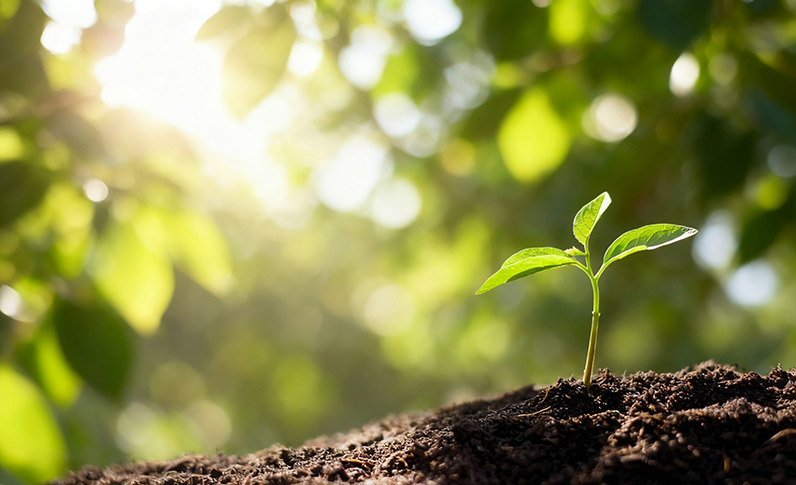
Switching to disposable wooden forks has measurable positive effects on the environment:
Reduces plastic pollution in oceans and landfills.
Decreases carbon footprint since wood production emits less CO₂.
Supports sustainable forestry when sourced responsibly.
Promotes eco-awareness among customers and businesses alike.
Every fork made from wood instead of plastic represents a small but meaningful contribution toward a cleaner planet.
For wholesalers, restaurants, and catering businesses, buying wooden forks in bulk offers many benefits:
Bulk purchasing significantly reduces the per-unit cost and transportation expenses.
Ensures consistent availability during peak seasons or large events.
Manufacturers often provide OEM/ODM services, allowing you to design unique packaging or print your logo on the forks.
Working directly with manufacturers (such as those in China) ensures better quality control, pricing transparency, and flexible order handling.
If you are looking for a reliable supplier, Ancheng — a professional China-based manufacturer of biodegradable tableware — offers a full range of eco-friendly cutlery including disposable wooden forks, spoons, knives, and sporks. Their products are LFGB and SGS certified, 100% biodegradable, and customizable with printed or embossed logos.
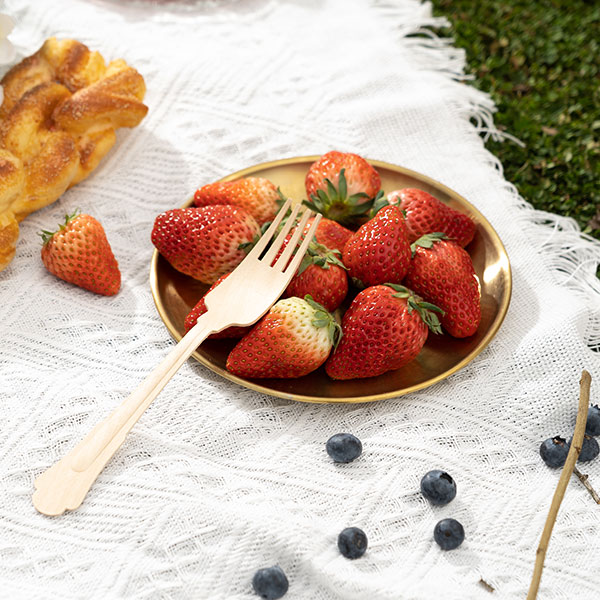
With growing environmental concerns and strict regulations on plastics, the future clearly belongs to eco-friendly disposable cutlery. Wooden forks, along with bamboo and bagasse products, are at the forefront of this movement.
As technology improves, expect to see:
More durable and moisture-resistant designs.
Custom branding at lower costs.
Enhanced production efficiency for global demand.
Businesses adopting these solutions early not only comply with regulations but also strengthen their reputation as sustainable and responsible brands.
Disposable wooden forks represent the perfect blend of sustainability, functionality, and style. They’re durable, compostable, and align with the global mission to reduce single-use plastic waste.
Whether you’re a restaurant owner, event planner, or eco-conscious consumer, switching to wooden forks is a small step with a big environmental impact.
By choosing certified, high-quality wooden forks from reliable manufacturers like Ancheng, you can serve food responsibly — with care for both your customers and the planet.
Yes. Quality wooden forks are made from natural, untreated wood and meet food-grade safety standards like LFGB or FDA.
They are designed for single use, but if kept clean and dry, they can be reused for light applications. However, for hygiene reasons, reuse is not generally recommended in food service.
No. Properly treated and polished wooden forks are neutral in taste and odor.
Yes, they can withstand heat and are safe to use with hot food. However, they are not designed for prolonged heating in microwaves.
Absolutely. Many manufacturers like Ancheng offer laser engraving, printing, or embossed logo options to promote your brand.